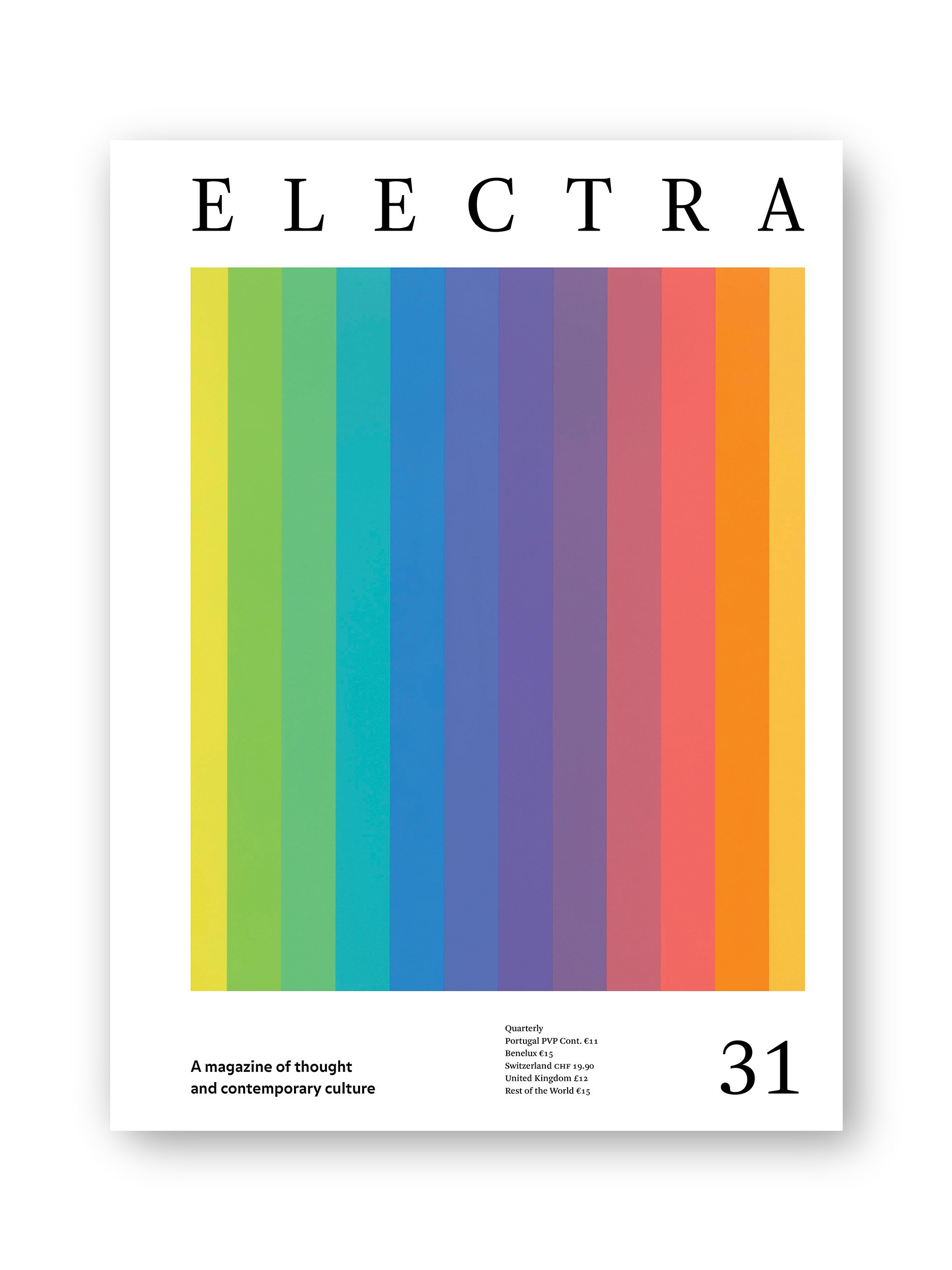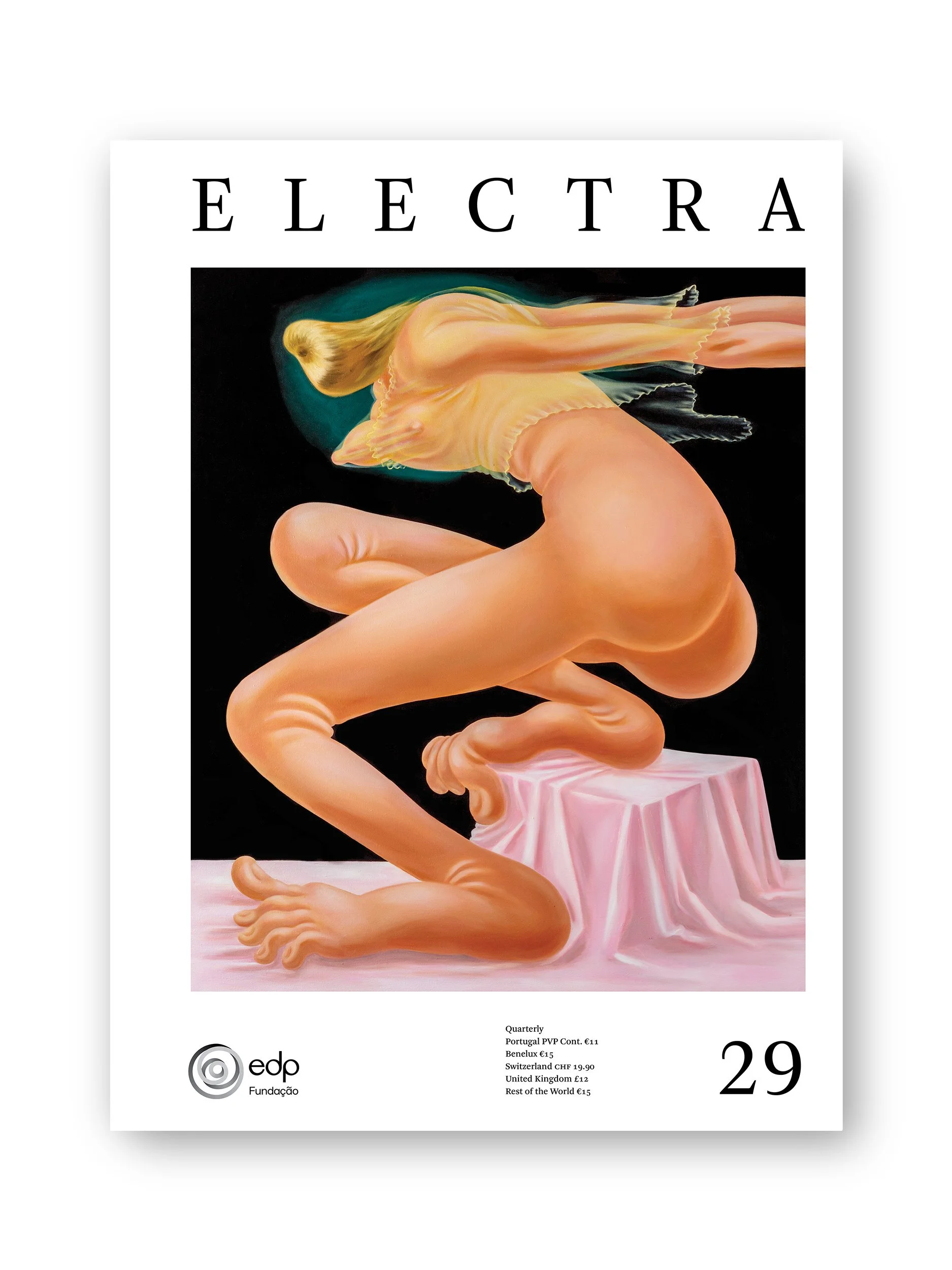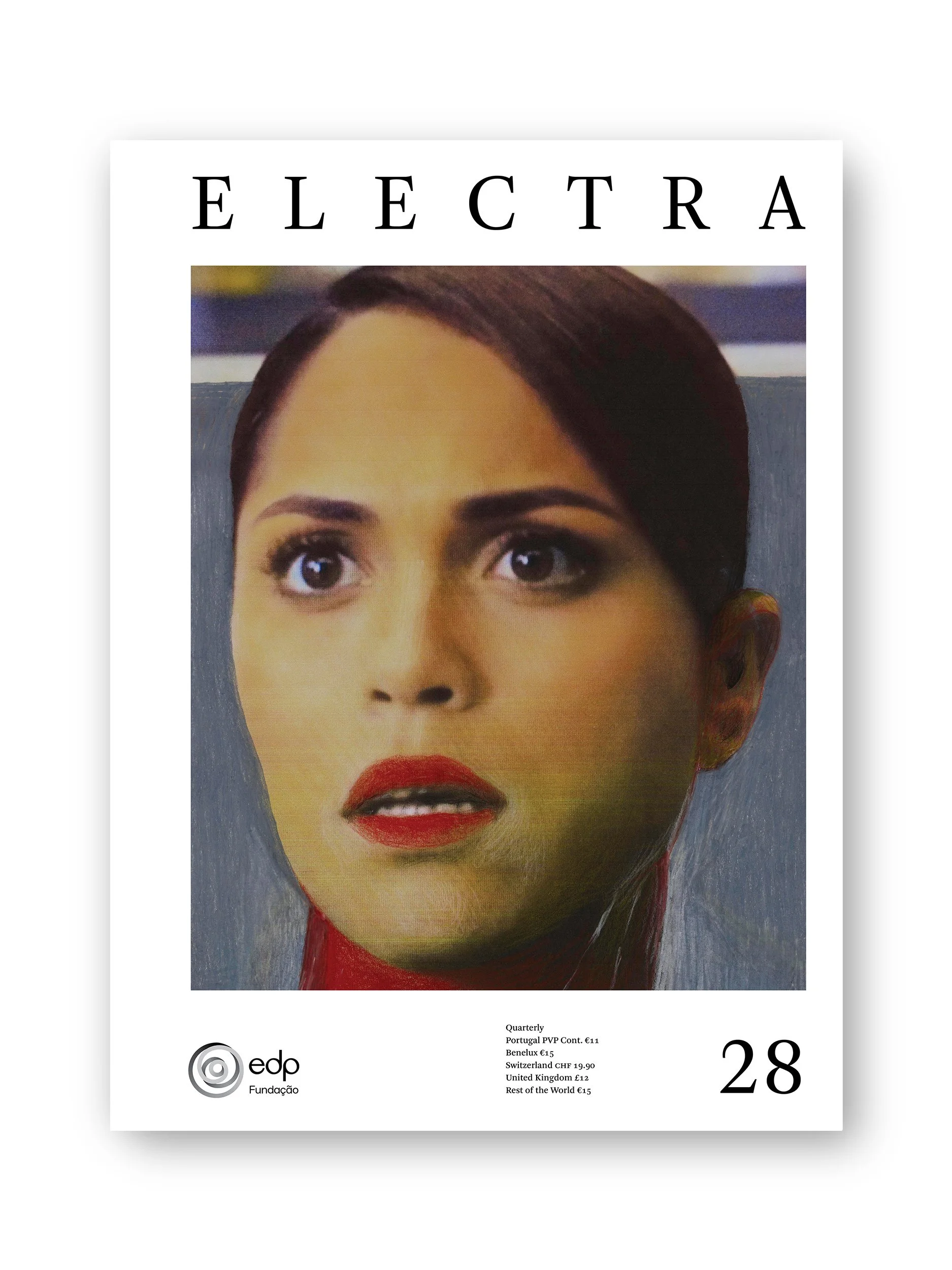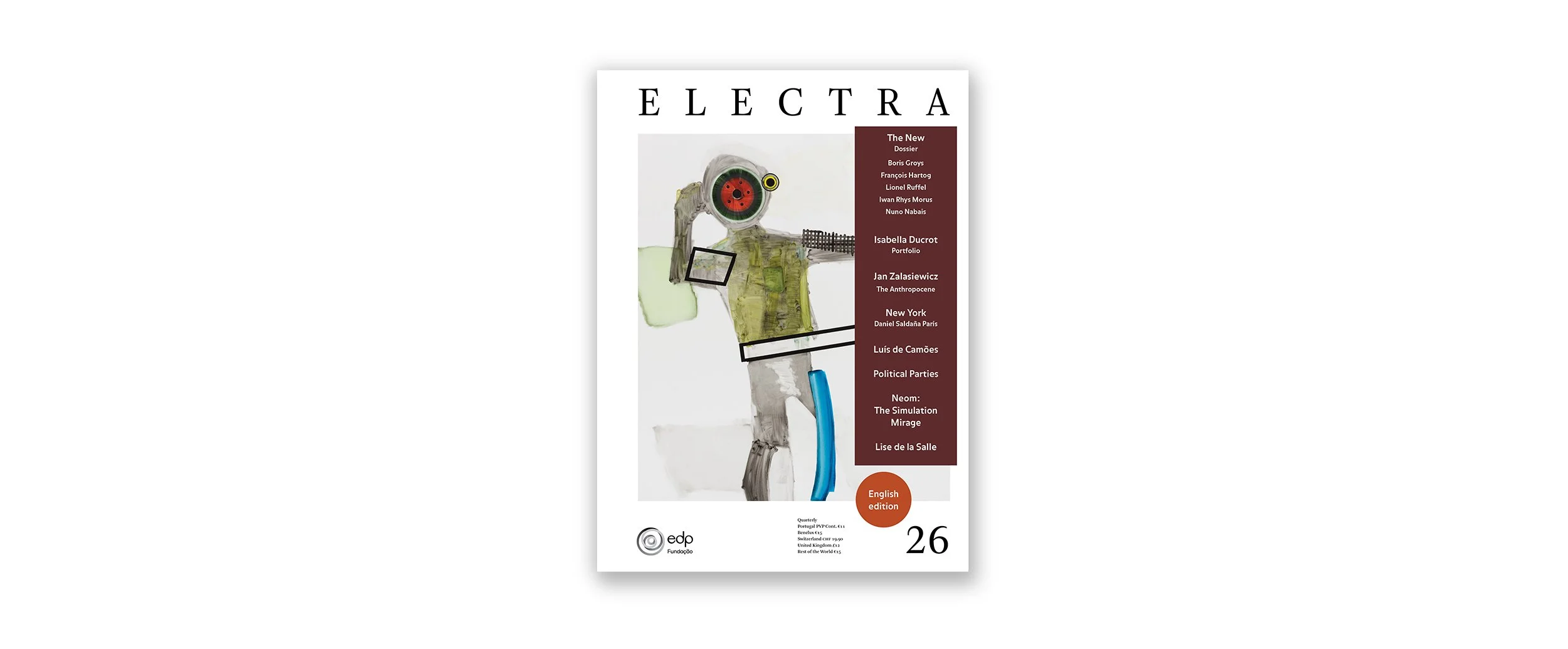....Electra 21 / Leisure and idleness..Electra 21 / Ócio e lazer....



















....Electra 21 / Leisure and idleness..Electra 21 / Ócio e lazer....
....
The central “Subject” of issue 21 of Electra magazine, summer edition, is "Leisure and Idleness", two concepts with a long history. With the economic, social and cultural transformations that have taken place since the first half of the twentieth century, the forms of idleness and leisure have undergone profound changes in its values, practices, spaces, modalities, and meanings. From a perspective that analyses the contemporary condition of idleness and leisure, in this issue we publish an interview with Franco "Bifo" Berardi, a fundamental figure in contemporary thought, and an essay by renowned architect and critic Mark Wigley. With a valuable diversity of viewpoints, we also include texts by André Barata, Claire Siegel, Raúl Rodríguez-Ferrándiz, and Francesco Masci.
Alejandro Aravena, winner of the Pritzker Prize in 2016, is interviewed by researcher and architect Ana Vaz Milheiro for "In the First Person" section. In a conversation in which he discusses his own path of development, he also talks about the relationship between architecture, housing, society, sustainability, and nature. The Chilean architect also tells us about the experience of designing and building in Lisbon.
In the "Planisphere" section, photographers and editors André Príncipe and José Pedro Cortes continue a series developed for Electra which they began in Tangier and continued in Cairo. This time, the encounter is with French photographer Bernard Plossu in La Ciotat, on a trip that ends in Corsica. In an interview that becomes very intimate, they talk about life, travels, the passion of the desert, passing time, photography, photographers, photography books, and the work that Plossu did in Portugal.
The woke movement has encompassed new forms of struggle and antagonism in the public space, with deeply entrenched positions placed in direct conflict. This situation is examined by Electra 21 in two texts that take part in this division: that of writer and philosopher Véronique Bergen and that of researcher and philosopher Carolina Flores. In the "Metropolitan" section, Dutch graphic designer, researcher and professor Ruben Pater talks to Frederico Duarte about his books and his conception of design as a practice of citizenship.
Also in this issue of Electra, Joana Bértholo writes about the word "Trans"; artist Gonçalo Pena presents 21 as yet unpublished drawings; Austrian poet and essayist Ann Cotten visits Steyr, a town in Upper Austria which combines a powerful natural setting with historical and cultural memory and industrial and manufacturing heritage; Luca Mazzocchi writes about the great writer Carlo Emilio Gadda, his labyrinthine and complex work and its reception; José Manuel dos Santos comments on a statement by Pope Francis about homosexuality, giving it historical perspective; and João Oliveira Duarte looks at the publication of a vast volume that brings together the entire critical work of Joaquim Manuel Magalhães.
.
Softcover, 27 x 20 cm, 260 pages
—
..
O número 21 da revista Electra, edição de verão, tem como “Assunto” central o “Ócio e o Lazer”, dois conceitos com uma longa história. Desde a primeira metade do século XX, os regimes do ócio e do lazer sofreram mudanças que, com as transformações económicas, sociais e culturais, alteraram profundamente a sua natureza, nos seus valores, práticas, espaços, modalidades e significados. Numa perspectiva que analisa a condição contemporânea do ócio e do lazer, publicamos neste dossier uma entrevista com Franco «Bifo» Berardi, figura fundamental do pensamento contemporâneo, e um ensaio do reconhecido arquitecto e crítico Mark Wigley. Com uma valiosa diversidade de pontos de vista, incluem-se também textos de André Barata, Claire Siegel, Raúl Rodríguez-Ferrándiz e Francesco Masci.
Alejandro Aravena, arquitecto vencedor do Pritzker Prize em 2016, é entrevistado pela investigadora e arquitecta Ana Vaz Milheiro para a secção “Primeira Pessoa”. Numa conversa em que aborda o seu percurso pessoal, fala também da relação entre arquitectura, habitação, sociedade, sustentabilidade e natureza. O arquitecto chileno dá-nos ainda conta da experiência de projectar e construir em Lisboa.
Na secção “Planisfério”, os fotógrafos e editores André Príncipe e José Pedro Cortes continuam a série concebida para a Electra, que iniciaram em Tânger e prosseguiram no Cairo. Desta vez, o encontro foi com o fotógrafo francês Bernard Plossu, em La Ciotat, numa viagem que terminou na Córsega. Numa entrevista que se tornou muito íntima, falam da vida, de viagens, da paixão do deserto, do tempo que passa, de fotografia, de fotógrafos, de livros de fotografia e também do trabalho que Plossu fez em Portugal.
Na Electra 21, o movimento woke, que convocou para o espaço público formas de luta e antagonismos de um novo tipo, onde se investem posições exacerbadas, é abordado por dois textos que participam dessa divisão: o da escritora e filósofa Véronique Bergen e o da investigadora e filósofa Carolina Flores. Na secção “Metropolitano”, o designer gráfico, investigador e professor holandês Ruben Pater, numa conversa com Frederico Duarte, fala dos seus livros e da sua concepção do design como prática de cidadania.
Ainda neste número da Electra, Joana Bértholo escreve sobre a palavra “Trans”; o artista Gonçalo Pena apresenta 21 desenhos inéditos; a poeta e ensaísta austríaca Ann Cotten visita Steyr, uma cidade da Alta Áustria, que alia uma natureza poderosa com a memória histórica e cultural e com o património fabril e industrial; Luca Mazzocchi escreve sobre o grande escritor Carlo Emilio Gadda, falando da sua obra, labiríntica e complexa, e da recepção dela; José Manuel dos Santos comenta uma declaração do Papa Francisco sobre a homossexualidade, dando-lhe uma perspectiva histórica; e João Oliveira Duarte regista a edição de um vastíssimo volume que reúne toda a obra crítica de Joaquim Manuel Magalhães. ..
Capa mole, 27 x 20 cm, 235 páginas
—
....
“....If you’re doing a museum, maybe the thing is to control everything to the last nail. When you’re dealing with nature, with the public space, with housing, with infrastructure, with sanitation and many more things, the forces at play here are different. ..Se se está a fazer um museu, talvez seja preciso controlar tudo até ao último prego. Quando se está a lidar com a natureza, com o espaço público, com a habitação, com a infra-estrutura, com o saneamento e muitas outras coisas, as forças em jogo são outras. ....”
“....Technical advances liberate us from work; the problem is that, at the same time […] technical advances constantly create new needs, new forms of work. ..A técnica liberta do trabalho, o problema é que ao mesmo tempo […] a técnica cria constantemente novas necessidades, novos trabalhos. ....”
“....Architecture is not just the opposite of idleness. It is constructed by the fear of idleness. It is what that fear looks like. ..A arquitectura não é apenas o oposto da ociosidade. Ela é construída sobre o medo da ociosidade. É o aspecto que esse medo tem. ....”
“....I always say that Robert Frank is stronger than Cartier-Bresson because he is ‘less good’. And it is this ‘less good’ that makes it better. Cartier Bresson is ‘too’ perfect. ..Digo sempre que Robert Frank é mais forte do que Cartier-Bresson, porque é menos bom. E é este menos bom que o torna melhor. Cartier-Bresson é demasiado perfeito. ....”
-
....
Director / José Manuel dos Santos
Editor / António Guerreiro
Published by Fundação EDP
Summer 2023Softcover, 27 x 20 cm, 260 pages
ISBN 978 989 35081 69..
Director / José Manuel dos Santos
Editor / António Guerreiro
Publicado por Fundação EDP
Verão 2023
Capa mole, 27 x 20 cm, 235 páginas
ISBN 978 989 35081 76....










